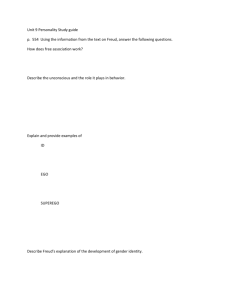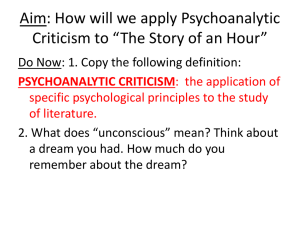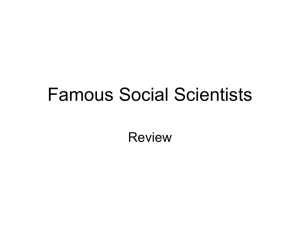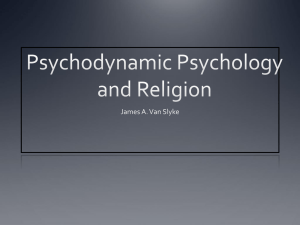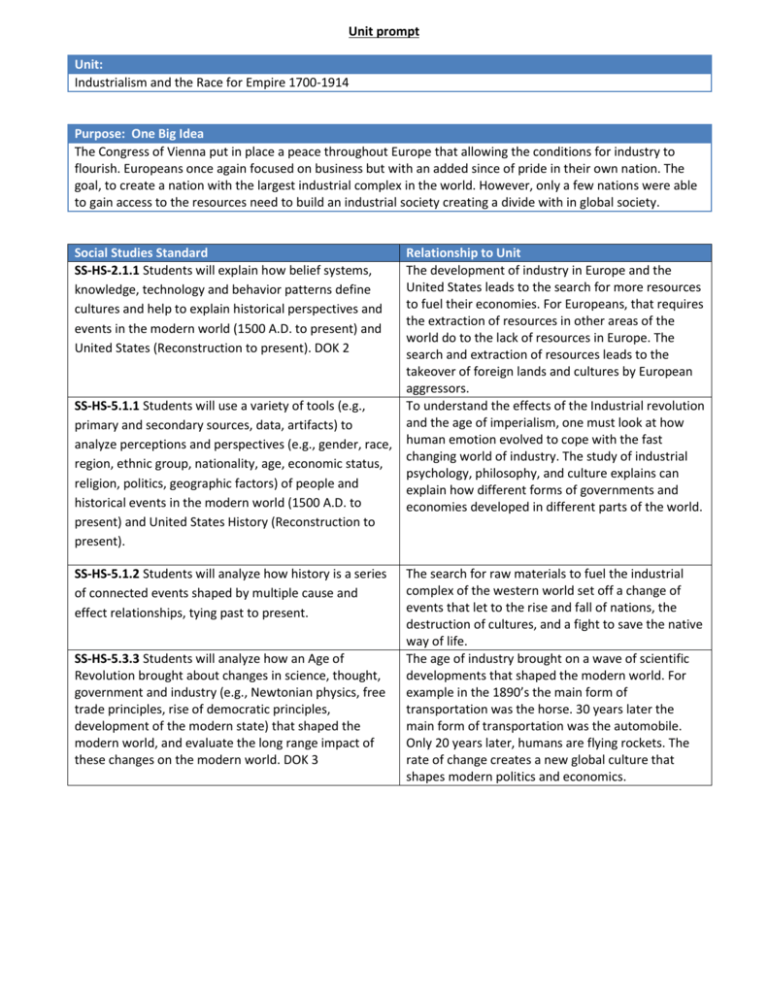
Unit prompt
Unit:
Industrialism and the Race for Empire 1700-1914
Purpose: One Big Idea
The Congress of Vienna put in place a peace throughout Europe that allowing the conditions for industry to
flourish. Europeans once again focused on business but with an added since of pride in their own nation. The
goal, to create a nation with the largest industrial complex in the world. However, only a few nations were able
to gain access to the resources need to build an industrial society creating a divide with in global society.
Social Studies Standard
SS-HS-2.1.1 Students will explain how belief systems,
knowledge, technology and behavior patterns define
cultures and help to explain historical perspectives and
events in the modern world (1500 A.D. to present) and
United States (Reconstruction to present). DOK 2
Relationship to Unit
The development of industry in Europe and the
United States leads to the search for more resources
to fuel their economies. For Europeans, that requires
the extraction of resources in other areas of the
world do to the lack of resources in Europe. The
search and extraction of resources leads to the
takeover of foreign lands and cultures by European
aggressors.
SS-HS-5.1.1 Students will use a variety of tools (e.g.,
To understand the effects of the Industrial revolution
and the age of imperialism, one must look at how
primary and secondary sources, data, artifacts) to
analyze perceptions and perspectives (e.g., gender, race, human emotion evolved to cope with the fast
changing world of industry. The study of industrial
region, ethnic group, nationality, age, economic status,
psychology, philosophy, and culture explains can
religion, politics, geographic factors) of people and
explain how different forms of governments and
historical events in the modern world (1500 A.D. to
economies developed in different parts of the world.
present) and United States History (Reconstruction to
present).
SS-HS-5.1.2 Students will analyze how history is a series
of connected events shaped by multiple cause and
effect relationships, tying past to present.
SS-HS-5.3.3 Students will analyze how an Age of
Revolution brought about changes in science, thought,
government and industry (e.g., Newtonian physics, free
trade principles, rise of democratic principles,
development of the modern state) that shaped the
modern world, and evaluate the long range impact of
these changes on the modern world. DOK 3
The search for raw materials to fuel the industrial
complex of the western world set off a change of
events that let to the rise and fall of nations, the
destruction of cultures, and a fight to save the native
way of life.
The age of industry brought on a wave of scientific
developments that shaped the modern world. For
example in the 1890’s the main form of
transportation was the horse. 30 years later the
main form of transportation was the automobile.
Only 20 years later, humans are flying rockets. The
rate of change creates a new global culture that
shapes modern politics and economics.
Lesson Title
Early Industry
Main Ideas
1. The Causes of the Industrial Revolution
2. Describing key inventions that furthered the industrial revolution
1. Social and economic effects of industrialization
2. Harsh working and living conditions within industrialized cities.
3. Describe industrial growth in the United States.
1. Analyze the effects of industrialization on the rest of the world.
2. Explain the origins and main concepts of socialism
3. Describe the reform movements of the 1800's
1. Explain why industry led to the study of Human behavior in a Scientific Way
2. Trace advances in science and technology
Industrial Life
Industrial Philosophy
Industrial Psychology
Motives of Imperialism
1. Analyze the motives of European colonizers
2. Describe factors allowing the Europeans to control Africa
3. Explain the patterns of imperialist management
Europe vs Ottoman Empire
1. Analyze the decline of the Ottoman Empire
2. Describe the Crimean War
3. Explain the division of the Ottoman Empire
1. Analyze the British takeover of India
2. Describe positive and negative features of colonialism in India
3. Describe nationalist movements in India
1. Describe why Southeast Asia was important to imperialist
2. Explain the involvement of the United States in the Pacific
3. Analyze the impact of imperialism on third world nations.
The British Raj
American Imperialism
Lesson Title
Early Industry
Quiz
10 Questions
Points
10
Points
35
5
10
Homework
Daily sheet/ Reading Guide/ Become a
Millionaire
Daily Sheet/ Reading Guide/”Industrial
Life”
Daily Sheet/ Reading Guide/ Communist
Manifesto
Daily Sheet/ Reading Guide/unconscious
Daily Sheet/Reading Guide
Industrial Life
10 Questions
10
Industrial Philosophy
10 Questions
10
Industrial Psychology
Motives of Imperialism
5 Questions
10 Questions
Europe vs. Ottoman Empire
5 questions
5
Daily sheet/Reading Guide/
10
The British Raj
American Imperialism
5 questions
5 questions
5
5
Daily Sheet/Reading Guide/
Daily Sheet/Reading Guide/
10
10
Assessments
Formative (quizzes, worksheets, ect)
Summative (Unit Exam)
ACT Preparation Reading Assignments
Total:
Points
165
50
40
255
10
10
10
10
World Civilization Daily Sheet
Unit:
Industrialism and the Race
for Empire 1700-1914
Lesson:
Section:
Pages:
Date:
th
19 Century Progress:
Industrial Psychology
Purpose of the Lesson:
Between the 1860 and 1914 the industrial world experienced a such a rapid growth of technology that
governments, cities, and people had trouble keeping up with the growth. Demands of growing industry
spurred even greater advances in technology, science, and economic growth. The growth of industry was
attempting to make life easier however it was a long way away from proving enough technology and jobs for
everyone. Many people were still suffering and looked for alternate ways to cope with their suffering.
Objectives:
1. Explain why industry led to the study of Human behavior in a Scientific Way
2. Trace advances in science and technology
I Can . . .
Answer the I can as if it were a question
Describe several technological development during the
late 19th century
Analyze the effects industrialism had on society
Explain how the growth of the global industrial
complex effected the psyche of the human mind and
why the change occurred
Essential Question – Answer in no less than 3 sentences
In what ways has the industrial revolution shaped the modern world?
Terms
Henry Ford
Charles Darwin
Theory of Evolution
Radioactivity
Psychology
Mass Culture
Wright Brothers
Alexander Graham Bell
Definition /Significance/ Date
Date:
Definition:
Significance
Date:
Definition:
Significance:
Date:
Definition:
Significance:
Date:
Definition:
Significance:
Date:
Definition:
Significance:
Date:
Definition:
Significance:
Date:
Definition:
Significance:
Date:
Definition:
Significance:
Procedure:
Day 1
1. Fill out the daily sheet then begin reading the assigned pages while attendance is taken.
2. Class discussion on the objectives and I can statements: How do you think they are related to each other?
3. Class lecture/discussion on the developing psychology of the Industrial Revolution
4. Discuss possible answers to the Essential Question
5. Class work/Homework – I can Statements, and Vocabulary.
Day 2
1. Discuss the ‘I can” Statements and their relationship to the objectives.
2. Complete assignment The Theory of the Unconscious
4. Answer Essential question through a class discussion
Day 3
1. Check off work from Lesson 2
2. Lesson Quiz
3. ACT preparation Reading assignment
Assignments:
Points
Daily Sheet/Reading Guide/ The Theory of the
Unconscious
5
Lesson Quiz
ACT Preparation Reading Assignment
5
5
Due Date
The Unconscious Mind
Prompt:
The scientific theories of the 1800’s prompted scholars to study human society and behavior in a
scientific way. Psychology is the study of the human mind and behavior and many psychologists believed
that human behavior was a reaction to physical surroundings and in some form humans react to
different situations without their control. The period of Industrial Revolution led to what scholars
believed as the dawn of a new age in human behavior.
Sigmund Freud (1856-1939)
http://www.iep.utm.edu/f/freud.htm#H3
Directions
Read the following explanation of Sigmund Freud’s theory of the unconscious
Watch the M.A.S.H. Episode “Dear Sigmund”
Answer the following question in one paragraph
Explain how Freud’s view on the subconscious is a product of the Industrial Revolution. (Hint:
Don’t forget what living in an industrial city was like during the Late 1800’s)
Rubric
In order to receive credit the essay must have the following:
1 . The paragraph must be in correct format with an introduction, explanations, examples, analysis, and
conclusion
2. Paragraph does not have to discuss the M.A.S.H. episode or Freud’s theory directly but needs to give
an explanation of why theories such as this developed during the time period of the Industrial
Revolution.
3. The Theory of the Unconscious
Freud's theory of the unconscious, then, is highly deterministic, a fact which, given the nature of
nineteenth century science, should not be surprising. Freud was arguably the first thinker to
apply deterministic principles systematically to the sphere of the mental, and to hold that the
broad spectrum of human behavior is explicable only in terms of the (usually hidden) mental
processes or states which determine it. Thus, instead of treating the behavior of the neurotic as
being causally inexplicable - which had been the prevailing approach for centuries - Freud
insisted, on the contrary, on treating it as behavior for which is meaningful to seek an
explanation by searching for causes in terms of the mental states of the individual concerned.
Hence the significance which he attributed to slips of the tongue or pen, obsessive behavior, and
dreams - all, he held, are determined by hidden causes in the person's mind, and so they reveal in
covert form what would otherwise not be known at all. This suggests the view that freedom of
the will is, if not completely an illusion, certainly more tightly circumscribed than is commonly
believed, for it follows from this that whenever we make a choice we are governed by hidden
mental processes of which we are unaware and over which we have no control.
The postulate that there are such things as unconscious mental states at all is a direct function of
Freud's determinism, his reasoning here being simply that the principle of causality requires that
such mental states should exist, for it is evident that there is frequently nothing in the conscious
mind which can be said to cause neurotic or other behavior. An 'unconscious' mental process or
event, for Freud, is not one which merely happens to be out of consciousness at a given time, but
is rather one which cannot, except through protracted psychoanalysis, be brought to the forefront
of consciousness. The postulation of such unconscious mental states entails, of course, that the
mind is not, and cannot be, identified with consciousness or that which can be an object of
consciousness - to employ a much-used analogy, it is rather structurally akin to an iceberg, the
bulk of it lying below the surface, exerting a dynamic and determining influence upon the part
which is amenable to direct inspection, the conscious mind.
Deeply associated with this view of the mind is Freud's account of the instincts or drives. The
instincts, for Freud, are the principal motivating forces in the mental realm, and as such they
'energies' the mind in all of its functions. There are, he held, an indefinitely large number of such
instincts, but these can be reduced to a small number of basic ones, which he grouped into two
broad generic categories, Eros (the life instinct), which covers all the self-preserving and erotic
instincts, and Thanatos (the death instinct), which covers all the instincts towards aggression,
self-destruction, and cruelty. Thus it is a mistake to interpret Freud as asserting that all human
actions spring from motivations which are sexual in their origin, since those which derive from
Thanatos are not sexually motivated - indeed, Thanatos is the irrational urge to destroy the
source of all sexual energy in the annihilation of the self. Having said that, it is undeniably true
that Freud gave sexual drives an importance and centrality in human life, human actions, and
human behavior which was new (and to many, shocking), arguing as he does both that the sexual
drives exist and can be discerned in children from birth (the theory of infantile sexuality), and
that sexual energy (libido) is the single most important motivating force in adult life. However,
even here a crucial qualification has to be added - Freud effectively redefined the term 'sexuality'
here to make it cover any form of pleasure which is or can be derived from the body. Thus his
theory of the instincts or drives is essentially that the human being is energized or driven from
birth by the desire to acquire and enhance bodily pleasure.
Reading Guide
Directions: Answer the following questions using complete sentences.
1. In what way did the industrial revolution make life easier? Give two examples
2. Which of the inventors do you think was more influential to modern society Edison, Bell, or Ford?
Explain your reasoning
3. According to Darwin, how does natural selection affect evolution?
4. Why was the work of Pavlov and Freud groundbreaking?
5. What effect did the assembly line have on production costs? Why?
6. How did Joseph Lister improve the survival rate of his patients?
7. What effect did the spread of public education have on culture?
8. Compare mass culture of the early 20th century to mass culture of the 21st century.


